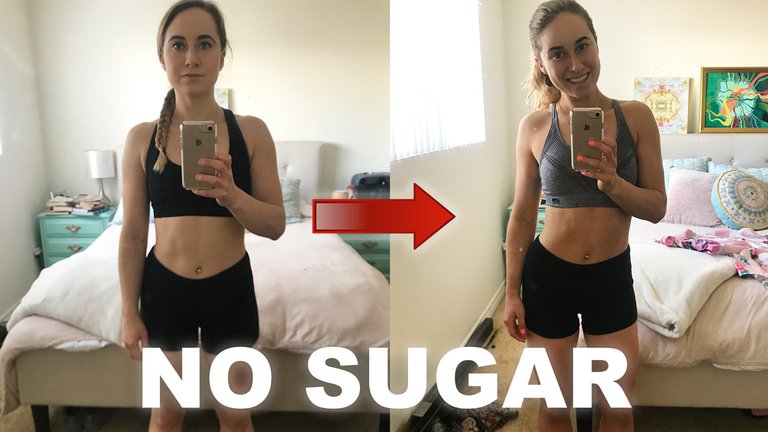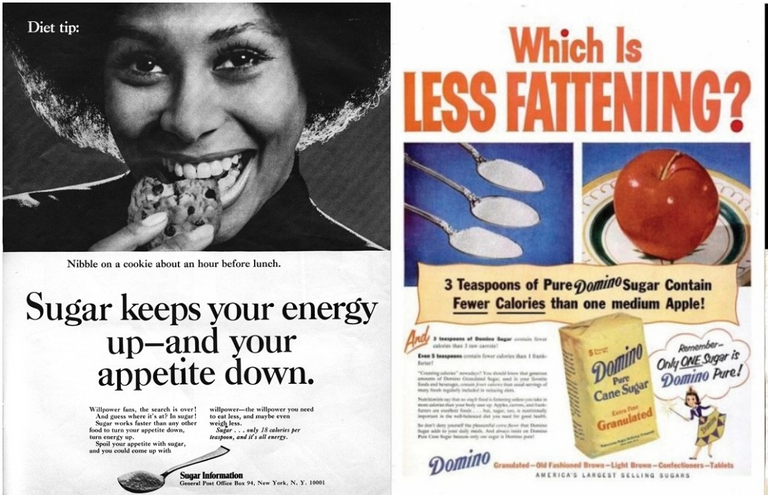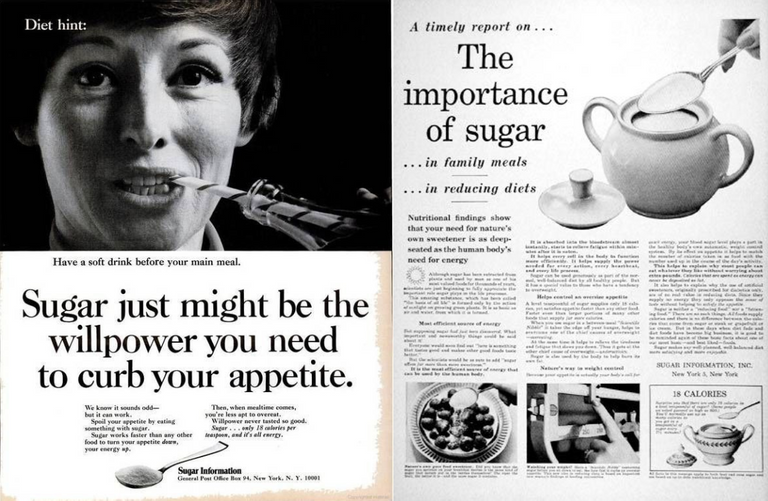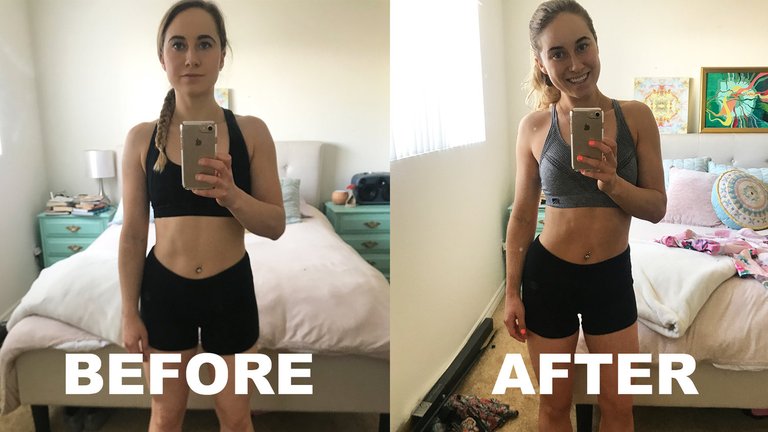
I gave up sugar for one month: Here's what happened
Sugar. It's everywhere. Lines of candy bars stare us in the face every time we check out at the grocery store or pharmacy. Even when we're trying to be healthy and head straight to the produce aisle, the bakery section beckons right next door, filled with cakes, cookies, muffins, and cinnamon buns all designed to signal the reward pathways in our brain that make us want more... and more... and more.
Sugar is hidden in everything, including not-so-obvious places like salad dressings, ketchup, pasta sauce, and bread. Even products that are advertised as "healthy" like granola, yogurt, oatmeal, protein bars, and sports drinks. Foods labeled "gluten-free" and "low fat" can also contain quite a bit of sugar. In fact, 77 percent of all processed foods in the US contain added sugars.
But what exactly is sugar and why is it so pervasive in our society?
Sugar and its history
Sugar, or sucrose, is a disaccharide made up of two molecules: glucose and fructose. Glucose is an energy source that can be metabolized by all of our organs, even our brain. Fructose, on the other hand, is metabolized by the liver. When the liver gets overwhelmed with too much fructose, it will start to convert to fat.
We now know that too much sugar can lead to obesity, diabetes, heart disease, fatty liver disease, and even mental health issues. But it hasn't been until fairly recently that we understood this, because it turns out the sugar industry worked really hard for a long time to make sure the American public was kept in the dark about the harmful effects of sugar.
In the 1960s a sugar industry group called the Sugar Research Foundation funded Harvard scientists to produce research results that would refute concerns about sugar potentially causing heart disease, and point the blame to fat. The mission was successful, accompanied by PR campaigns and advertisements that promoted sugar as a "health food" for increased energy and weight loss.
Looking at these advertisements now, it's quite laughable, until we remember the public health crisis that we are now caught in, that sugar helped create.


For more information about the history and politics of sugar, there's a great documentary on Netflix called "Sugar Coated."
According to the American Heart Association (AHA), the maximum amount of added sugar that should be consumed in one day for men is 150 calories or nine teaspoons. For women, it’s 100 calories or six teaspoons.
Americans consume an average of 20 to 30 teaspoons of added sugar per day, which is up to six times the recommended amount. To put that in perspective, one 20 ounce bottle of soda is 70 grams of sugar, nearly three times more than the recommended intake. So, if you drank one bottle of soda every day for one month you’d be drinking 2,100 grams of sugar. Yikes.
There’s a big difference between eating fruit that has naturally occurring fructose, and other food products that contain added sugar. The reason is that fruit contains fiber, antioxidants, and phytonutrients, which is why it won’t cause the same blood sugar rise and crash that happens when you eat something like candy or drink soda.
The Glycemic Index is a ranking of how quickly foods make our blood sugar levels rise after eating them.
The challenge
With sugar so prominent in our culture, I wanted to see if I could make it one full month without eating any sugar at all.
During this month I eliminated all added sugars, and even natural sugars, except for low glycemic fruits like berries and grapefruit.
Before taking on this month-long challenge, I cut out sugar from my diet for one week and made a video about it. To help manage sugar cravings I used a miracle berry that changes your taste buds and makes sour foods taste sweet. It's called the ledidi berry and I also used it for this challenge to help me stay on track when the sweet tooth crept in.
THE CHALLENGE
After cutting out sugar for one week my energy levels increased and I felt great. So I was really curious to see what might happen after a full month without sugar.
You may experience withdrawal effects
Sugar is highly addictive, so many people will experience some withdrawal effects if they eliminate sugar completely from their diet. Although I have a little bit of sweet tooth for gummy candy and ice cream, I don’t actually eat a ton of sugar normally. I eat really clean and eat a relatively low sugar diet, so I didn’t necessarily experience any severe withdrawal effects. But if sugar is a common part of your daily eating habits and you decide to take on the no sugar challenge, you may have to get over the hump of withdrawal. After about a week or so, the crappy feelings should pass and you should start to feel great.
Week 1
Week 1 was pretty easy considering I had already done one week with no sugar, so I knew that I could do it. I came out of the gate really motivated and excited for the challenge ahead.
Week 2
At the end of Week 1, my attitude shifted quite quickly when it hit me that I still had three weeks left. This is where I began experiencing some doubt. I also had a really stressful week. When I get stressed is when I crave sugar the most. I ended up caving in and cheated with some dark chocolate chips and honey. I was pretty mad at myself but I bounced back quickly and didn't let myself dwell on the mistake.
Week 3
I knew that week 3 would be the hardest week considering I was going home to Boston for Easter and knew that an array of delicious, sweet, Easter treats would be awaiting me. This was by far the most difficult part of the challenge. It's one thing when you don't buy anything with sugar in it. It makes it much easier to manage day-to-day when there's just no sugar in your kitchen. When it's laid out in front of you is when it gets tough. My aunt even brought my favorite carrot cake from my favorite baker! I wanted a piece so badly, but I knew that I had to stay strong and power through. I needed to prove to myself that I could do this. Instead of chocolate and cake for dessert at Easter, I enjoyed a big bowl of mixed berries.
Week 4
After surviving Easter, I felt like a superhero. By this time, I had my meal prep system down. My fridge was stocked with meal prepped food and healthy snacks to carry me through. I had my green smoothies meal prepped and ready to go, with all of the ingredients in ziplock bags in the freezer so I could easily make smoothies in the morning. By week four I was feeling fantastic. I noticed my skin cleared up a lot over the course of the month and I was feeling much lighter with higher energy levels.
The Results
Although parts of this challenge were really tough, I am so glad that I stuck to it and proved to myself that I could do it. Eliminating sugar from my diet
1. My energy increased
I noticed this effect after going no sugar for one week, but man was it obvious after one month. I often struggle with fatigue and exhaustion and this subsided a lot during my no sugar journey.
2. My skin cleared up
Because there is so much added sugar in processed and packaged foods, I rarely ate anything from a box or a bag during this month, which meant I was eating even cleaner than I normally do. I ate lots of vegetables, fish, nuts and seeds, green smoothies, and healthy home-cooked meals. By the end of the month my skin was clear, glowy, and hydrated.
3. My focus and productivity improved
Sugar can often cause something called "brain fog," which is basically the sleepy, dazy feeling we often experience. Symptoms include lack of focus, forgetfulness, and lack of mental clarity. After not eating any sugar, it was astounding how much my focus and productivity increased, without me even trying or doing anything different.
4. My body changed
I wasn't even focusing on how my body was changing during the four weeks. I barely noticed until I looked at my before and after pictures. I couldn't believe the difference from just making this one change. I don't like to focus too much on weight, but I ended up losing about five pounds!

I highly encourage anyone to try the no sugar challenge, even if it's just for a few days or a week. It can be tough at first, but the benefits are definitely worth it!
Vibes,
Sky

New to Sky Life? Check out my first post here!
Subscribe to my YouTube channel!
Follow Me!:
Instagram
Facebook
Twitter
Sign up for my exclusive Newsletter

Hi @skylife. I think your post is educational and I really enjoyed reading it. It thinks it deserves more attention. But, in order to do this, I have to know if this is really you or somebody is just posting and pretending to be you.
So if you can just edit your post a little bit on your blog and post a link to Steemit in there somewhere on your post? So I can verify you are in control of the site?
I think by doing so it will give more credibility to your great posts and probably more rewards it deserves. :)
Have a great day. :)
Excelent post @skylife! Very detailed and well explained. Sugar is the 21st century poison... A few days ago I was watching a documentary in the TV which said that an actual 8 years old average kid has already eaten more sugar in his 8 years than his grandparents have done in its entire life!!! It seems very alarming to me since sugar in excess is very harmful and these kids might contract serious diseases in the future.
Cheers from Barcelona!
That is a crazy stat!! I appreciate the comment @olbrich. Right back at ya from LA :) followed
Hey @skylife, I loved your blog, and your posts in general!
One advice would be to link steemit to any of your social media (leave a link to steemit.com on any of your profiles, or on your site).
We love to see original content, and we love to reward it as well!
Cheers,
TamaCvet
That is a great tip. Thank you @tamacvet
Very cool. Very informative. Great Video content as well. Keep it up!
Thanks @fellowhuman